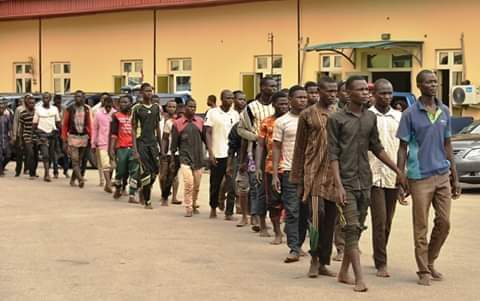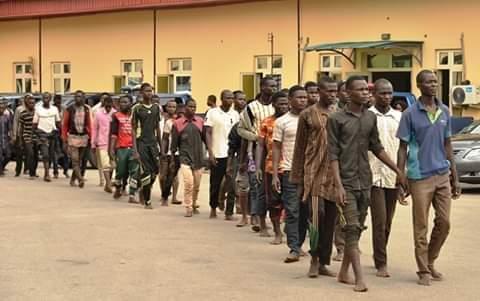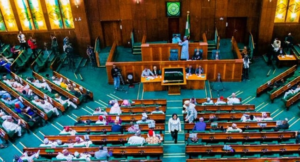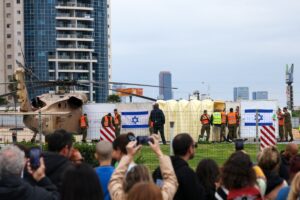
The 123 men from Jigawa State who were detained by the Lagos State Taskforce on Environmental Sanitation and Special Offences (Enforcement Unit) have sued the Lagos State Government for unlawful detention and seizure of their motorcycles.
Other respondents include the Lagos State Commissioner of Police and the Chairman of the task force, Mr. Yinka Egbeyemi as well as the Attorney-General of Lagos State.
The men were intercepted along Moshalashi Road, Agege alongside 48 motorcycles in a truck, which was coming from Jigawa State but were later released
 On Monday, however, Abdullahi Yakubu on behalf of himself and the other men filed a suit Federal High Court, Lagos demanding N1bn reparation from the state government for profiling and detaining them.
On Monday, however, Abdullahi Yakubu on behalf of himself and the other men filed a suit Federal High Court, Lagos demanding N1bn reparation from the state government for profiling and detaining them.
The arrest had sparked a heated debate on social media over the manner in which the men were paraded and interrogated in front of the media.
In the suit with number FHC/L/CS/1519/19, the 123 men demanded the payment of N1bn as damages.
They asked for a declaration by the court that the prevention of the applicants numbering 123 from moving into Lagos State of Nigeria by the state government without prima facie incriminating evidence against the applicants constitute a flagrant violation of the 123 men’s right to move freely throughout Nigeria as guaranteed by section 41 of the Constitution Federal Republic of Nigeria 1999 (as amended).
They also want a declaration of the court that the detention of the men in the absence of prima facie incriminating evidence against them constitutes a violation of their right to personal liberty protected by section 35 of the Constitution Federal Republic of Nigeria 1999 (as amended).
The 123 men represented by Mr. Abba Hikima and other lawyers, also prayed the court to mandate the respondents to release to their seized motorcycles numbering 48, the truck conveying them, their wears and any other goods belonging to them in custody.
It states further, “An order of this honourable court awarding the sum of N1,000,000,000.00 (One Billion Naira) payable by the respondents jointly and severally to the applicants as reparation.
“An order of this honourable court directing the respondents to tender unreserved public apology to the applicants.”








